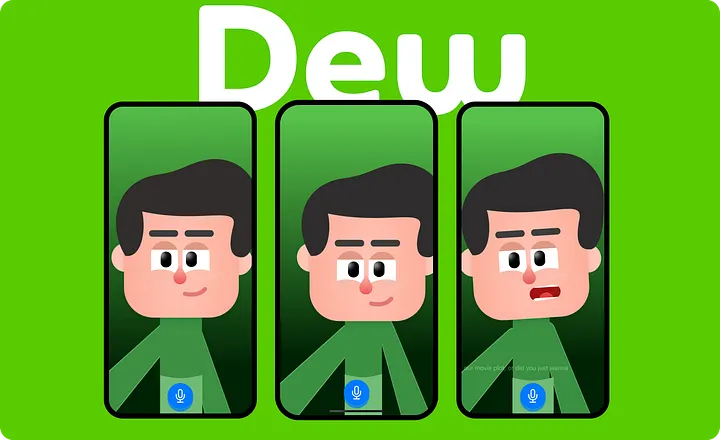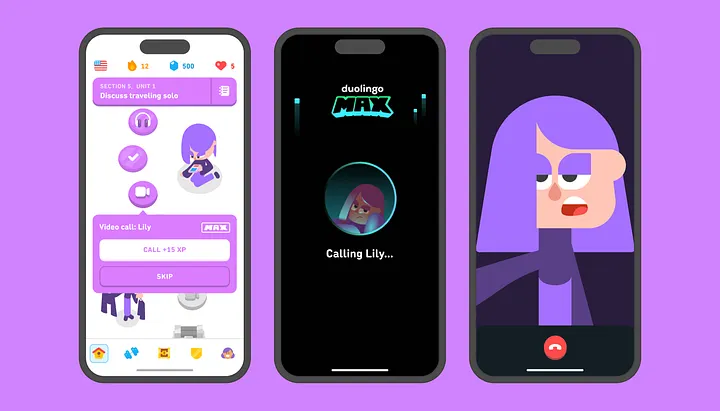为什么人工智能需要一个面孔:构建Dew,我的Duolingo灵感的人工智能角色
[
[
A hands-on breakdown of designing, animating, and syncing voice for an AI assistant using OpenAI, Rive, and a lot of trial and error
一个关于设计、动画和同步 AI 助手声音的实用分解,使用 OpenAI、Rive 和大量的反复试验
Press enter or click to view image in full size
按回车或点击查看完整图像

We keep talking about how AI will change the world, but most AI apps look like futuristic marbles floating in space, polished, perfect, and honestly, a bit soulless. The tech gets smarter, but the personality never does.
我们一直在谈论人工智能将如何改变世界,但大多数人工智能应用看起来像是在太空中漂浮的未来主义弹珠,光滑、完美,老实说,有点无灵魂。技术变得更聪明,但个性却从未改变。
Why do we settle for talking to something that looks like a screensaver?
我们为什么要满足于与看起来像屏幕保护程序的东西交谈?
I’ve always liked the look of these abstract orbs in apps like ChatGPT and Perplexity. They’re clean, modern, and safe. But here’s the thing: they don’t feel personal.
我一直喜欢像ChatGPT和Perplexity这样的应用中的这些抽象球体的外观。它们干净、现代且安全。但问题是:它们并不感觉个性化。
When we interact with characters in games or apps, we remember their quirks, their faces, and even their jokes. That emotional spark is missing from most AI experiences. I realised that if AI is going to be part of our daily lives, it needs to do more than just answer questions — it needs to feel alive.
当我们与游戏或应用中的角色互动时,我们会记住他们的怪癖、面孔,甚至他们的笑话。大多数AI体验中缺少这种情感火花。我意识到,如果AI要成为我们日常生活的一部分,它需要做的不仅仅是回答问题——它需要感受到生命。
That’s how Dew was born.
这就是 Dew 的诞生方式.
I was inspired by characters like Lily from Duolingo – sarcastic, expressive, and fun. I wanted to create something similar: an AI assistant that feels alive, reacts naturally, and makes you smile.
我受到像 Duolingo 的 Lily 这样的角色的启发——讽刺、富有表现力且有趣。我想创造一些类似的东西:一个感觉活生生的 AI 助手,自然反应,让你微笑。
Press enter or click to view image in full size
按回车或点击以查看完整图像

Duolingo’s Lily
Duolingo的Lily
Deep Philosophy Behind It
背后的深刻哲学
One thing I realised early on: we need to be deeply invested in the philosophy ...